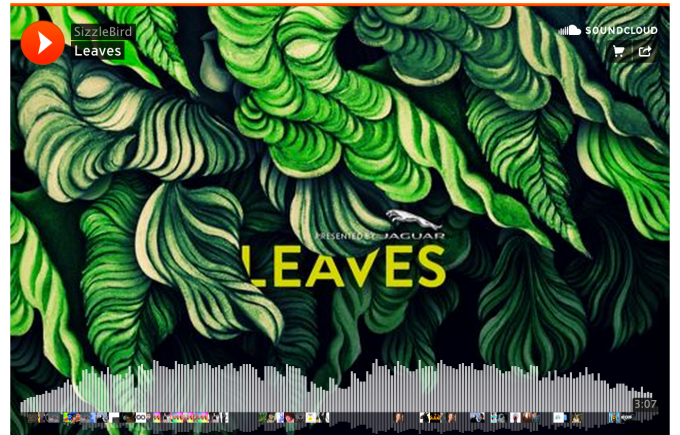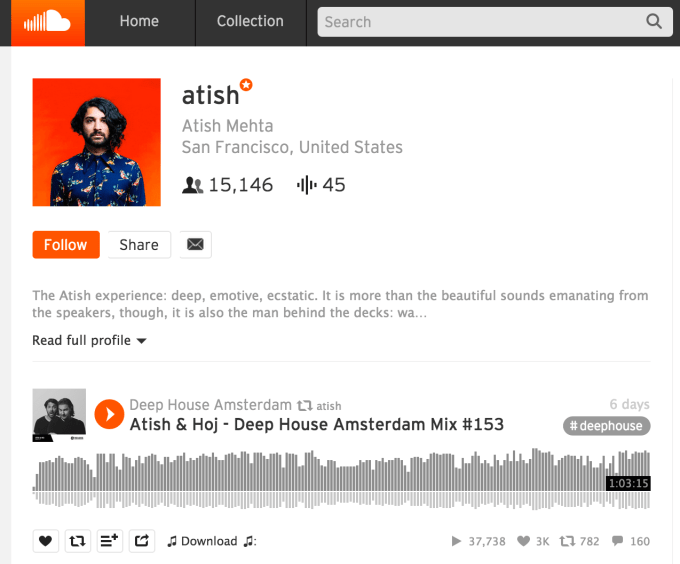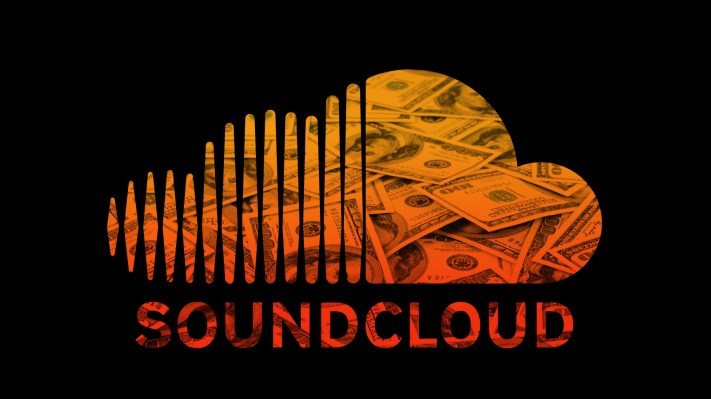SoundCloud is desperately trying to go legal and pay royalties before labels pull their music from the streaming service. A contract for legal licensing with independent music publishers shows just how much that could cost the Berlin-based startup. Though this copy of the contract is unsigned, the National Music Publishers’ Association and SoundCloud last month announced they had struck a deal.
SoundCloud would pay 10.5 percent of its revenue including ads or about 22 percent of what it makes on sound recording rights — whichever is higher, according to the contract. The document proposes a deal for the aggregated independent labels, and implies similar deals could be reached with each of the three major record labels: Warner Brothers, Sony and Universal. A Most Favored Nation clause could keep compensation to the NMPA publishers equal to any deals with the majors once market share is taken into account.

One of SoundCloud’s first ads: a song “presented by Jaguar”
The contract also lays out plans for two potential premium listening tiers to be launched in the future to complement its ad-supported free tier.
One tier, codenamed “Additional Services,” would let users pay for an audio and visual ad-free experience and download a limited amount of music, presumably similar to syncing options from services like Spotify. Labels could take $0.18 per Additional Services per user per month if it’s higher than the revenue or sound recording rights income for this tier.
However, this would still only offer access to a limited catalog of music. A “SoundCloud Full Catalog Subscription Service” would offer paid access to an even wider array of music. Labels could get $0.80 per user per month for this tier if it’s higher than the other compensation arrangements.
To seal the deal, SoundCloud would pay the group of independent music publishers a $350,000 advance on the compensation explained above, split between them based on market share of the independent music listened to on the service. Under the terms, SoundCloud would continue to offer a free ad-supported tier, and wouldn’t pay additional royalties beyond it on free trials designed to upsell users to premium subscriptions.
The contract first appeared on Digital Music News but contained little context or analysis of what the dense 19-page contract actually means. When asked for comment about the contract and its negotiations with publishers, SoundCloud told me “no comment”. The music startup was late to bringing ads to its platform 10 months ago. That’s after it raised at least $123 million, but showed a disappointing $14.1 million in revenue in 2013 with $29.2 million in losses.
Labels have begun to sour on the streaming service, which is widely perceived as hosting copyrighted music without properly compensating artists. Last month, Sony pulled music by some of its most popular artists. Billboard reported that an executive said this was due to “a lack of monetization opportunities.” SoundCloud has begun working with YouTube content ID service Zefr to identify unauthorized uploads of copyrighted music, which could be used to track royalties or issue takedowns.
Unfortunately, the journey to becoming fully legal could damage SoundCloud’s relationships with listeners, though. I grilled SoundCloud’s CTO Eric Wahlforss about this on-stage at TechCrunch Disrupt London 2014:
SoundCloud built itself to be the online home of legally gray music. Many DJs have used it to host their remixes and recordings of multi-hour DJ sets that include copyrighted material. Sudden takedowns of this content have frustrated some of SoundCloud’s most loyal users, including the DJs who pay for SoundCloud Pro subscriptions for creators that let them host more audio on the site and serve more listens of their uploads.
Deals with major and independent labels could make sure SoundCloud service could give it a broader catalog that won’t get taken down. Last month, The Verge published a leaked contract between Spotify and Sony in 2011 that offered similar “whichever’s higher” compensation equations and a most favored nation clause. This helped Spotify convince the major labels to license their music, allowing it to become a leader in on-demand streaming.

SoundCloud has a lot to do make good on its massive funding. It needs to get these deals in place and pay labels so they don’t pull their music. It must strike the right balance around monetizing remixes and DJ sets, content absent from Spotify and other competitors, so that the music that serves as the foundation of its unique value-add doesn’t disappear. And it needs to launch its ad-free subscription plan so it can squeeze more revenue out of its most loyal users.
There’s massive potential for a user-generated content-focused “YouTube For Audio.” While Spotify and iTunes’ upcoming streaming service center around popular music, the long tail of more amateur audio SoundCloud is built on has been getting squeezed out. SoundCloud just needs a way to make its listeners, uploaders, publishers, advertisers, and its own bottom line play in harmony.
